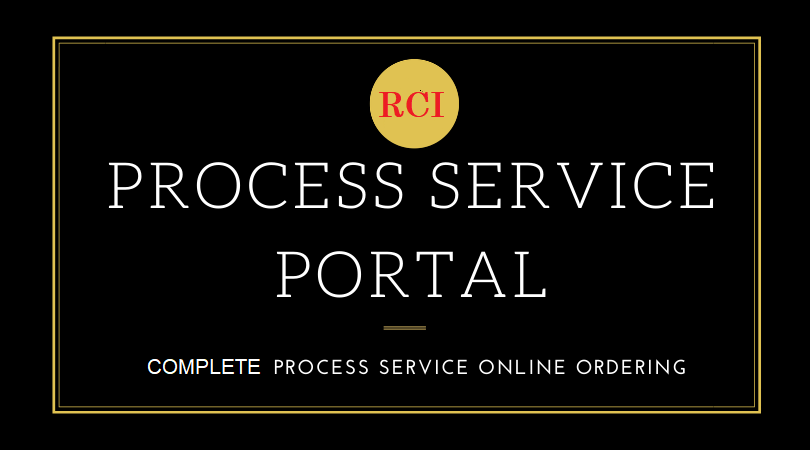Most foreign countries either participate via the Hague Service Convention, Inter-American Convention or Letters Rogatory in order to obtain a formal method of process service from legal actions initiated from inside the United States. This means that a request from a court in the United States to a court in a foreign country is requesting international judicial assistance related to service of process. These treaties govern this method of service. If you anticipate attaching assets in ANY foreign country upon being granted judgment in your case, you should strongly consider this procedure. The use of this method is NOT recommended by the U.S. State Department, unless attachment of assets will be necessary after obtaining a Judgment, or as a strict requirement by the country in which service is being contemplated, given the habitual time delays. Treaty service can often take 4-20 months or more to effect. Currently, some countries have a typical turnaround time of approximately 5-7 months.

International Service of Process in Foreign Countries
Service by Foreign Central Authority Pursuant to Multilateral Treaty or Convention
The United States is a party to two multilateral treaties on service of process, the Hague Service Convention and the Inter-American Convention on Letters Rogatory and Additional Protocol. Procedures for service under these conventions are summarized below. See also our country-specific information pages on judicial assistance.
- Hague Service Convention
Complete information on the operation of the Hague Convention on the Service Abroad of Judicial and Extrajudicial Documents in Civil or Commercial Matters can be found in the Service Section of the website of the Hague Conference on Private International Law. This includes the current list of countries that are party to the Convention, each country’s reservations, declarations and notifications relating to the operation of the Convention, the date the Convention entered into force for each country, as well as designated foreign central authorities. See the U.S. Department of Justice’s Office of International Judicial Assistance website for forms and information about how to submit requests.
- The Additional Protocol to the Inter-American Convention on Letters Rogatory
The United States is a signatory to the Additional Protocol to the Inter-American Convention for the purposes of legal service of documents only. Thus, only countries party to the Additional Protocol have a treaty relationship with the United States. For the most up to date information about ratifications and accessions to the Additional Protocol, see the Organization of American States website. See the U.S. Department of Justice’s Office of International Judicial Assistance website or its contractor, ABC Legal for forms and information about how to submit requests.
- U.S. Central Authority for the Hague and Inter-American Service Conventions
The Office of International Judicial Assistance (OIJA) serves as the U.S. Central Authority pursuant to the Hague Service Convention and the Inter-American Convention. Since 2003, the Department of Justice has delegated its function as the Central Authority with respect to the ministerial act of service of judicial and extrajudicial documents directed at private individuals and companies in the United States to a private contractor. Thus, outgoing requests for service pursuant to the Additional Protocol to the Inter-American Convention should be sent directly to the private contractor in accordance with the treaty. Please note, OIJA plays no role with regard to requests for service from the United States to foreign countries pursuant to the Hague Service Convention. For guidance on how to effect service abroad, please visit OIJA’s website.
Service through any of these methods usually requires 7 pages of treaty documents. All documents to be served, including the 7 pages of treaty documents, must be translated into the native language of the accepting country.
In order to prepare the necessary documents and facilitate the service, we require the following:
Translation fees are payable prior to commencement of service once we have reviewed the documents and have calculated the word count.
Advantage: In effect, creates a case in the country where the documents are served and make judgment enforceable.
Disadvantage: Serious time delays and costs. Treaty service can often take 4-10 months or more to effect.
What we will need to get it served:
International Service of Process in Foreign Countries
- If sending via email: a PDF version of the service documents combined into one (1) file. We will bill you for the additional copies at the rate of $.22 per page.
- If sending via FedEx, mail, or similar: three (3) copies of the documents to be served.
(Note: all 3 sets can be copies; original documents are not required) - A letter of instructions advising us the defendant’s name, service address, and requested method of service (i.e. formal or informal).
- Payment for the entire service fees in U.S. dollars in the amount quoted at the time of your request.
- We will bill you separate for the translation costs, prior to initiating service.
DECLARATION OF SERVICE: We provide formal declarations on the status of service upon request, as required by your court, at no additional charge. We subscribe to the U.S. Department of State weekly up-dates on international service of process and the Central Intelligence Agency briefings on social conditions abroad and monitor problems in nations that might affect the completion of the service. Estimated time for completion of service is subject to change depending on current conditions.
Rates vary from country-to-country, dependent upon many factors, and change based upon the area and foreign conditions of that area at the time service is requested. It is impossible to list all pricing for all areas in one website, so we suggest that you contact our office at the time your need this service for us to be able to provide the best quote possible at that time.
See the various options by viewing the links below:
https://www.state.gov/misc/list/index.htm













